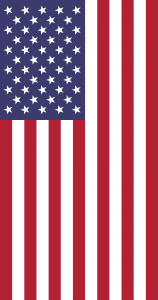It’s now easier to notice a population on edge, disappointed, and even enraged by the behavior of others.
A friend returning from a trip to South America recently commented on her impression of returning to what seemed like a very angry country. Being away in a culture with a more courtly pace reset her expectations. Coming home sharpened her impression that people here seemed on edge and unusually short-tempered. Indeed, many Americans also recognize the same dynamic of a nation disappointed and even enraged by the behavior of other Americans. You can pick your issue: people refusing or faking COVID vaccinations, narratives of magical thinking about government intentions, a coup attempt by a former President who fanaticizes that he is still in power, or more tentative medical recommendations than our binary thinking usually tolerates. This national stance of annoyance is sometimes directed to self-promoting “professionals” who have used social media to offer fantasy solutions to problems already on their way to being managed. Think of self-styled health experts on the margins of mainstream medicine getting more media attention than their views warrant. Established standards of competence and credibility no long seem to apply to the noisiest and most opportunistic.
 Writing in roller-coaster 1960s, the sharp-eyed Joan Didion noted that our national convulsions over Vietnam and racial violence meant that “the center will not hold.” The years of the Trump interregnum have similarly soured the nation on many within it. Too many seem to have strayed far from the norms of institutions they represent. Consider the former Secretary of Education’s outrageous preference for private over public schools, or the lies the Attorney General now admits he told to placate the President, or the President’s own dissembling regarding the pandemic or the 2020 election. And then there are the everyday norm violations that traditionally fill our news sites: instances of sexual predation from religious, business and school officials, violence against innocents by deranged and armed people beyond the reach of limited social services, or police who pose a threat to those they are supposed to protect. All feed the threatening rhetoric of armchair revolutionaries broadcasting their weirdness on social media sites. Even seditionists are sometimes normed, like the 18-members of the Texas congressional delegation who have paid no price for trying to nullify the votes of citizens in four other states.
Writing in roller-coaster 1960s, the sharp-eyed Joan Didion noted that our national convulsions over Vietnam and racial violence meant that “the center will not hold.” The years of the Trump interregnum have similarly soured the nation on many within it. Too many seem to have strayed far from the norms of institutions they represent. Consider the former Secretary of Education’s outrageous preference for private over public schools, or the lies the Attorney General now admits he told to placate the President, or the President’s own dissembling regarding the pandemic or the 2020 election. And then there are the everyday norm violations that traditionally fill our news sites: instances of sexual predation from religious, business and school officials, violence against innocents by deranged and armed people beyond the reach of limited social services, or police who pose a threat to those they are supposed to protect. All feed the threatening rhetoric of armchair revolutionaries broadcasting their weirdness on social media sites. Even seditionists are sometimes normed, like the 18-members of the Texas congressional delegation who have paid no price for trying to nullify the votes of citizens in four other states.
Some of these forms of violated social norms have gained more traction not because they are new, though some are, but because we now more aware of them. And the costs seem greater for kids forced to attend school without long established and nominal protections against an endemic virus; for voters who once had a high degree of trust in reliable systems of election security; or for African American communities again facing state legislators determined to discourage widespread electoral participation. We can add parents or nativist school boards intent on undermining various best practices that have evolved as part of the American curriculum, Supreme Court decisions that have trashed carefully enacted voter protections, and the wealthy who have escaped the requirement to to pay their fair share of taxes. The effects are real for a country that physically self-segregates, even while it finds common ground in sharing media reports about our apparent dystopia.
Social Norm Deviates Undermine Confidence
All of these factors and more undermine faith in the fairness of the “system” and the idea that everyone needs adhere to the glue of the social contract that holds a society together. The contract is real: for example, when we agree not to run red lights, or promptly pay others what we owe. Most of us also act on the contract when we share our wealth with others who cannot manage on their own. These routines are still strong, but almost never news. Because of more varied routes for taking the national pulse, we see more social norm deviates. Their visibility makes us angrier and less confident about the nation’s foundational principles.
![]()


 We like to share the fiction that we are “a people,” but it is obviously a rhetorical covering for a far more varied collection of individuals.
We like to share the fiction that we are “a people,” but it is obviously a rhetorical covering for a far more varied collection of individuals.